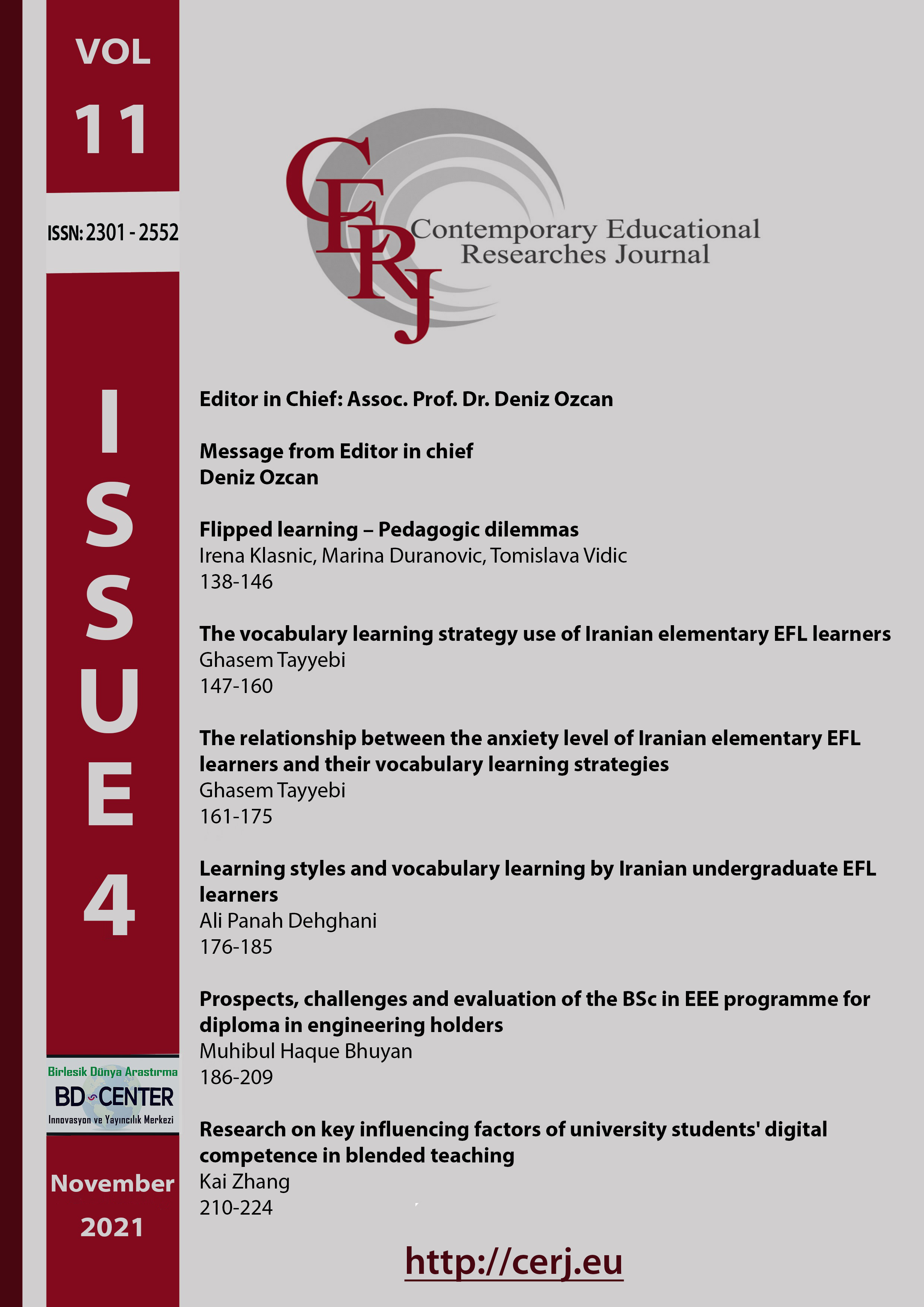Research on key influencing factors of university students' digital competence in blended teaching
Main Article Content
Abstract
Understanding the current state of information and communication technology (ICT) use in teaching situations will help schools better develop students' 21st-century skills to meet the digital age's challenges and opportunities. The purpose of this paper is to provide reference for colleges and universities to formulate the framework and implementation strategies of digital literacy education, by analysing the key factors that influence the digital literacy education of college students. Firstly, based on literature research and activity theory, this paper integrates and refines the influencing factors of digital literacy education of college students from five dimensions, and analyses the key factors affecting digital literacy education. Then, experts were invited to fill in the questionnaire to obtain sample data, and the interaction between the factors was analysed by using the decision-making trial and evaluation laboratory method to identify the key influencing factors. The results show that university policy, cultural environment, ICT infrastructure, teaching management and evaluation system are the five key influencing factors.
Keywords: ICT, digital literacy education, university students, activity theory, DEMATEL
Downloads
Article Details

This work is licensed under a Creative Commons Attribution 4.0 International License.
Authors who publish with this journal agree to the following terms:
- Authors retain copyright and grant the journal right of first publication with the work simultaneously licensed under a Creative Commons Attribution License that allows others to share the work with an acknowledgement of the work's authorship and initial publication in this journal.
- Authors are able to enter into separate, additional contractual arrangements for the non-exclusive distribution of the journal's published version of the work (e.g., post it to an institutional repository or publish it in a book), with an acknowledgement of its initial publication in this journal.
- Authors are permitted and encouraged to post their work online (e.g., in institutional repositories or on their website) prior to and during the submission process, as it can lead to productive exchanges, as well as earlier and greater citation of published work (See The Effect of Open Access).
